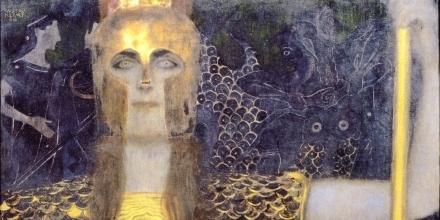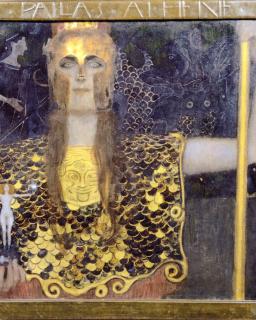
Gustav Klimt, Pallas Athena, 1898.
Authority involves claims of legitimacy, the capacity and right to exercise power. Taking ‘forms’ primarily in a literary/aesthetic sense, this theme seeks to interrogate the genres, images, and aesthetic forms in which authority is embedded – via tropes of realism, for example, in melodrama, reportage, tradition, and so on. Political representation and representations of politics come to inform the humanities broadly writ, while literary, artistic, and dramatic modalities are foregrounded as ways of addressing and shifting forms of authority. New technologies and forms of mediation also profoundly inflect this line of questioning and might be explored through direct examination of the forms of authority that technology wields or through the politics and histories of representation.
Possible topics include:
- How are forms of authority delineated and contested in discourses of the humanities and the creative arts?
- How have forms of authority changed or been fragmented in recent times?
- How do forms of aesthetic authority relate to the discourses of authority in politics and the public sphere?
- In what ways are aesthetic and scholarly efforts to figure political conflicts endowed with the same historicity as that which shapes these conflicts themselves?
- Can plural sovereignties and the modes of constitution of authority in law/lore become more visible through attention to aesthetic forms?
- How do ways of imagining futures and representing the past constrain, entrench, or challenge forms of authority?
- How do critical or reconstructive approaches to international human rights regimes work through aesthetic forms to explore or contest the historical narratives that underpin them?
